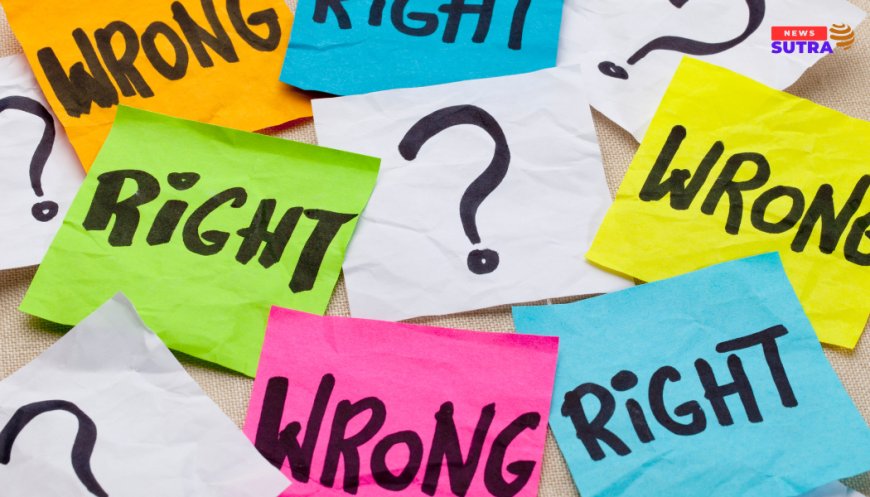Media Ethics in Crisis: Are News Channels Turning Into Propaganda Machines?
With increasing political bias and sensationalism, media ethics are under intense scrutiny. Is the line between journalism and propaganda disappearing?

Once considered the fourth pillar of democracy, the media is now facing its most serious credibility crisis in decades. Across the globe—and more acutely in democracies like India and the United States—questions around media ethics, impartiality, and integrity have taken center stage. With sensationalism, partisan narratives, and political allegiance taking precedence over factual reporting, many critics are asking: Are news channels becoming propaganda platforms instead of watchdogs of democracy?
A Growing Credibility Crisis
According to a recent Reuters Institute Digital News Report, trust in news media is at an all-time low in several countries, with more than half of respondents believing that media outlets are too aligned with powerful interests. The shift from fact-based journalism to opinion-driven and ideologically slanted coverage has fueled this erosion of trust.
In India, top television news channels have been accused of amplifying government narratives, downplaying critical issues, and disproportionately targeting opposition leaders. Meanwhile, in the U.S., polarized networks like Fox News and MSNBC have become synonymous with right-wing and left-wing echo chambers, respectively.
Blurring the Lines: Journalism vs. Propaganda
Propaganda is not just overt political messaging. It is often subtle, selective, and repetitive messaging that promotes a particular worldview while suppressing alternative perspectives. Unfortunately, many mainstream channels have adopted this formula:
-
Cherrypicked data or visuals to suit a particular narrative
-
Framing techniques that bias audience interpretation
-
Overuse of emotionally charged language
-
Panel discussions stacked with ideologically similar voices
-
Marginalization of dissenting journalists or whistleblowers
As media scholar Noam Chomsky notes in Manufacturing Consent, “The mass media serve as a system for communicating messages and symbols to the general populace. Their function is to amuse, entertain, and inform... and to inculcate individuals with the values, beliefs, and codes of behavior that will integrate them into the institutional structures of the larger society.”
The Indian Context: Trial by Media and Polarization
In India, the TRP (Television Rating Points) race has pushed many TV news channels to sensationalize rather than inform. The tragic death of Bollywood actor Sushant Singh Rajput turned into months-long media trials, distracting the public from real issues like job losses and rising inflation.
Leading journalists like Ravish Kumar, recipient of the Ramon Magsaysay Award, have consistently criticized what he calls the "prime-time circus." Kumar’s work, which focuses on underreported stories and media ethics, is featured prominently by outlets such as The Wire.
Simultaneously, self-styled “nationalist” anchors are often seen shouting down dissenters, blurring the line between journalism and jingoism.
Sponsored Content and Corporate Interests
The rise of advertorials, native ads, and sponsored content further complicates the picture. Newsrooms under financial stress often rely on corporate sponsorships that may influence editorial judgment. Media ownership by conglomerates with diverse business interests creates conflicts that are rarely disclosed.
A study by the Centre for Media Studies (CMS) found that over 60% of surveyed journalists admitted to internal pressure against covering stories that could affect advertisers or political patrons.
The Global Pattern: Not Just an Indian Issue
Across the Atlantic, the Fox News–Dominion Voting Systems lawsuit in the U.S. exposed internal emails showing that anchors aired discredited claims about election fraud to retain viewer loyalty, even when they knew the information was false. Fox later settled the case for $787.5 million, highlighting how truth can take a backseat to commercial and ideological motives.
Read more on the lawsuit and its implications via The New York Times.
Social Media: The Echo Chamber Amplifier
The digitization of news consumption has allowed algorithm-driven platforms like Facebook, YouTube, and X (formerly Twitter) to amplify biased or fake content. A 2023 report by MIT Sloan demonstrated that false news spreads faster and more widely than factual information, largely because it evokes strong emotional reactions.
News channels have adapted to this trend, crafting their segments with viral potential in mind, often sacrificing nuance and depth.
The Call for Ethical Journalism
There is still hope, however. Independent digital news platforms such as Scroll.in, The Caravan, and Alt News have emerged as vital players in fact-checking and long-form investigative journalism.
Moreover, international organizations like Reporters Without Borders (RSF) and Committee to Protect Journalists (CPJ) continue to call out media malpractice and promote press freedom globally.
India's position in the RSF World Press Freedom Index has been slipping steadily, raising alarm bells for advocates of democracy and media accountability.
Conclusion: The Fight to Reclaim Journalism
Media is supposed to serve the public interest — to inform, educate, and hold power to account. When journalism becomes propaganda, democracy suffers. The burden now lies on newsroom leaders, civil society, educators, and most importantly, the viewers, to demand ethical journalism grounded in facts, balance, and accountability.
As media critic Siddharth Varadarajan aptly puts it in his column for The Wire, “We must stop confusing noise for news. It’s time we ask for journalism, not theatre.”




















































